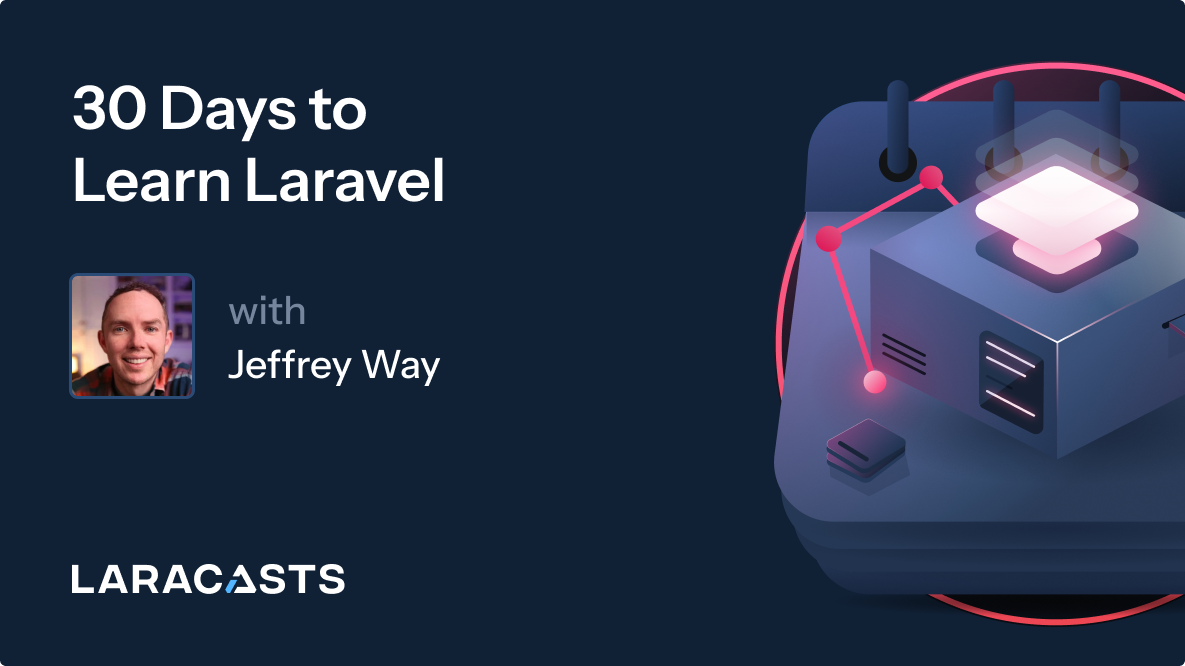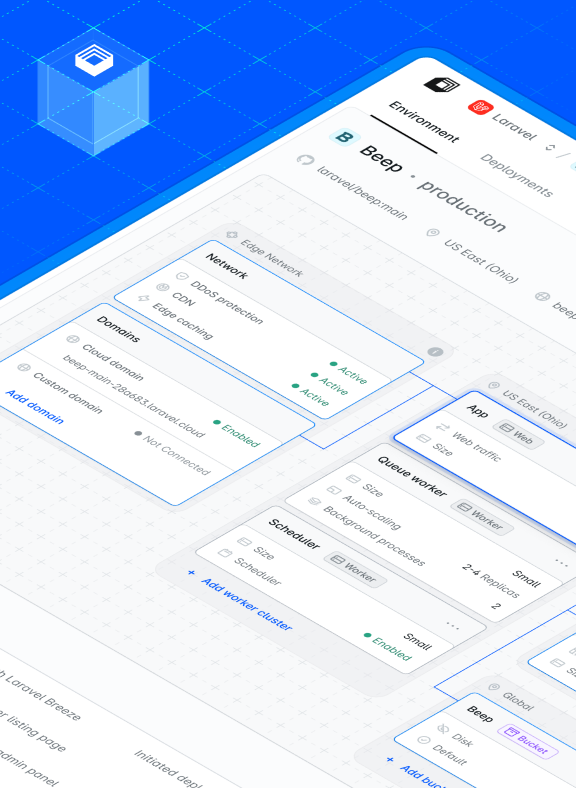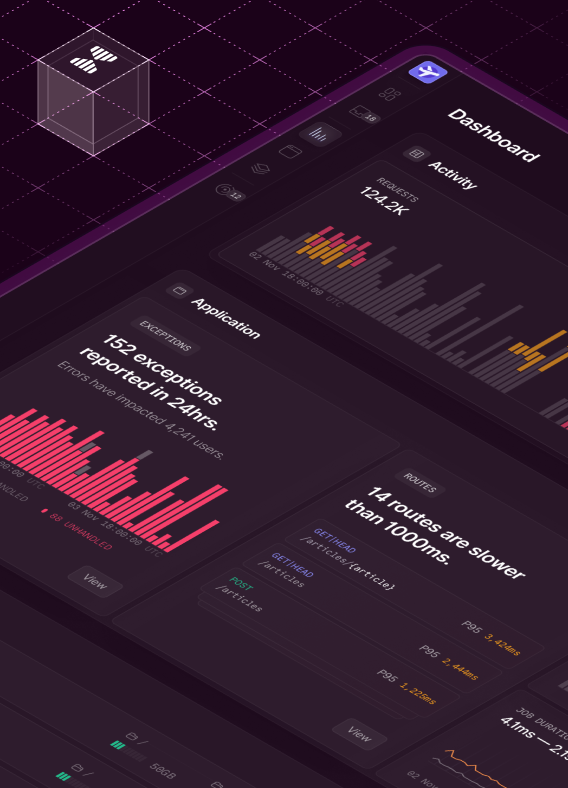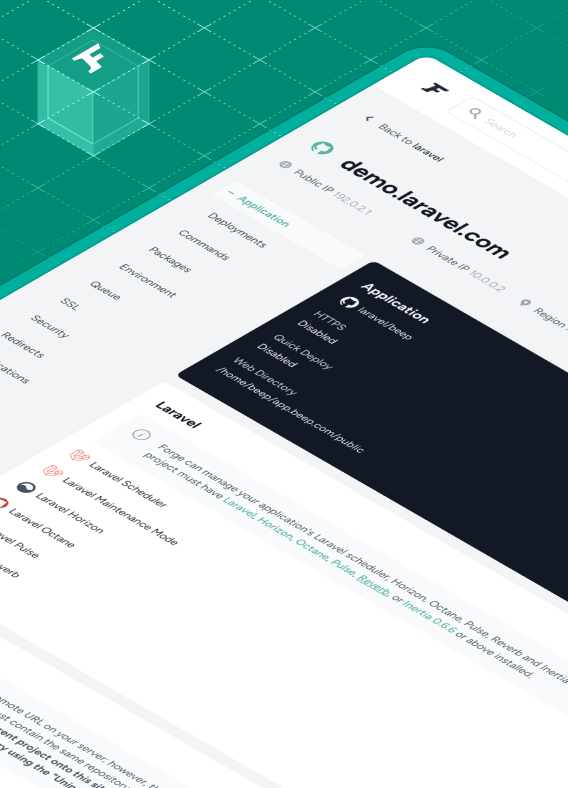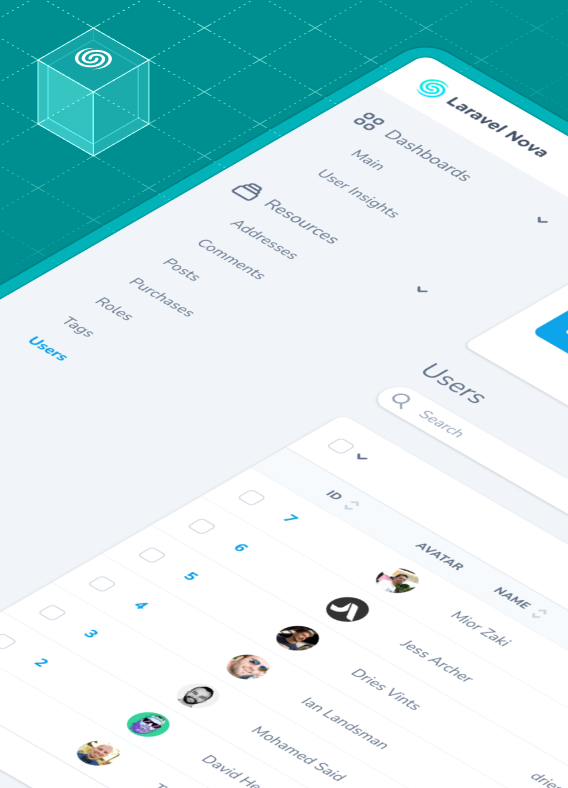A whole month has flown by since our last post which rounded up all of the things we shipped to Laravel Forge in April.
This month we've also been refactoring parts of Forge, laying the ground work for some exciting new things...
SSL Default Sites
When Forge provisions an App or Web server it creates a "default" site. This site is served by Nginx when a request is made to your server for a domain that has not been configured.
Previously, when a server had configured SSL for one of its domains, Nginx would avoid using this default site and instead serve the first domain that was listening on port 443.
To prevent this, Forge will now create a default site for SSL requests as well.
Site Log Improvements
The Log panel will now try to display logs from additional paths. This is especially useful when using Forge in combination with services such as Envoyer, which stores log files in nested folders. Furthermore, Forge will also attempt to display log files from WordPress sites.
Modern Server Defaults
Forge will now provision servers with Node v14.x by default. Previously, v12.x was installed.
PHP 8.0 is now the default version when creating a new server. Of course, you're free to change this as per your requirements.
Ubuntu Version Warning
If your server is running Ubuntu 16.04 or lower, Forge will warn you that your server is out of date and give advice on how to migrate your server to Ubuntu 20.04.
The version warning is visible in your site's deployment output.
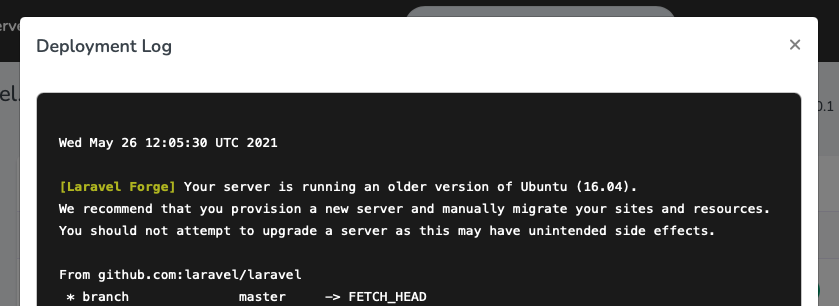 Database Backup Improvements
Database Backup Improvements
The improvements to the Database Backups feature just keep coming! You're now able to quickly select all databases when creating a new configuration, but in keep in mind this will not include databases created after the backup.
When creating a backup configuration using AWS or DigitalOcean spaces, Forge will now quickly validate the credentials too.
Extra Bits
DigitalOcean's AMD offering is now available in more regions, so we've reflected this in Forge too. You can now additionally select AMD as your server type in the AMS3, BLR1, LION1, NYC1, SGP1 and TOR1 regions.
Hetzner server types are now listed with their identifier, for example CX11 etc, making them much easier to find when creating your server.
And finally, when a server has finished provisioning, Forge now creates a lock file that prevents provisioning from happening again.
If you don’t have a Forge account, now is a great time to sign up! Forge allows you to painlessly create and manage PHP servers which include MySQL, Redis, Memcached, database backups, and everything else you need to run robust, modern Laravel applications.

